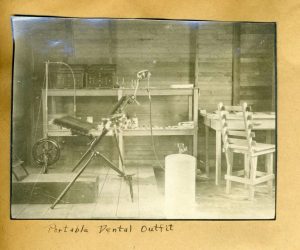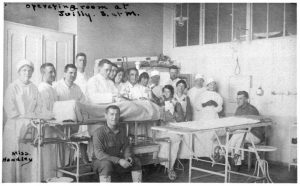Thursday, June 15, 2017 – 5:30pm
Kate Grauvogel is the 2016-2017 Foundation for the History of Women in Medicine Fellow, Doctoral student in the History and Philosophy of Science and Medicine Department at Indiana University-Bloomington.
This lecture is sponsored by The Archives for Women in Medicine and the Women in Medicine Legacy Foundation.
Kate Grauvogel is an advanced doctoral student in the History and Philosophy of Science and Medicine Department at Indiana University-Bloomington. Broadly, her research interests include the history of women’s health, especially pathology and psychiatry in the nineteenth and twentieth centuries. Her current research focuses on women and experimentation in medicine, particularly the history of blood clotting disorders in reproductive-age women, and how physicians perceived the whole constellation of gender, reproduction, secretions, clots, and associated diseases.
Grauvogel’s dissertation is entitled “A gendered history of pathology: blood clots, women, and hormones in the nineteenth and twentieth centuries.” It argues that the bodies of women—whether as obstetric patients, cadavers, or sufferers of side-effects from birth-control pills—shaped pathological theory as well as understandings of the role of secretions (later identifiable as estrogens) in health and disease. It also explores the medical and cultural functions of the Pill in the twentieth century and its impact on women and their lives. In it, she hopes to show how nineteenth-century pathologists and twentieth-century physicians observed pregnant women and women on the birth control pill and gleaned important information from them, such as the idea that fluctuations in estrogens could lead to the formation of dangerous blood clots.
The project as a whole uses primary sources from France, England, and Germany. At the Countway, Grauvogel will add an American perspective from the Boston Hospital for Women Records, 1926–1983, The Free Hospital for Women Records, 1875–1975, the Boston Women’s Health Book Collective, The Leona Baumgartner Papers, 1830-1979, the Janet Ward McArthur Papers, 1939-2005, and other collections. She will be looking for cases of lying-in illnesses, including blood clotting, which will shed light on how pathologists thought about dangerous blood clots in women as the result of either pregnancy or the Pill. She hopes to emerge with a better grasp of the ailments doctors observed in women, as well as and how they described and thought about such ailments.
Waterhouse Room
Gordon Hall
Harvard Medical School
25 Shattuck Street, Boston MA
Reception begins at 5:00pm.
Free and open to the public. Registration is required. Register online now through Eventbrite or email us at ContactChom@hms.harvard.edu.









